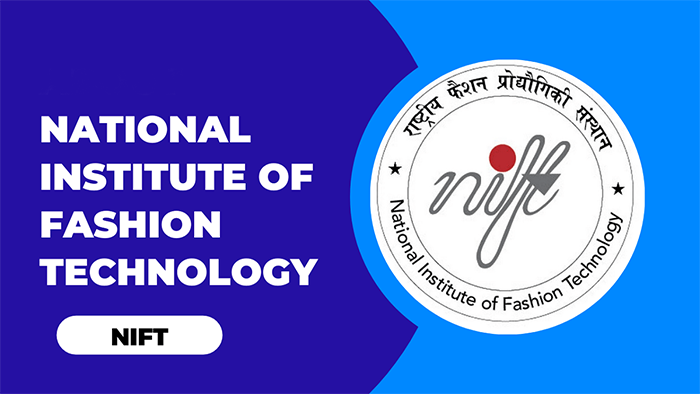
The National Institute of Fashion Technology (NIFT) is a fashion institute in India. It was set up in 1986 under the aegis of the Ministry of Textiles, Government of India and is an institution of design, management and technology for the international fashion business. The institute has its headquarters in Delhi and 16 other campuses in different states of India. NIFT offers undergraduate and postgraduate programmes in areas such as fashion design, textile design, accessory design, fashion communication, fashion management, apparel production and international business. The institute also offers various short–term and vocational programmes in fashion related areas.
National Institute of Fashion Technology (NIFT) Entrance Test
The National Institute of Fashion Technology (NIFT) Entrance Test is an entrance examination for admission to the various undergraduate and postgraduate courses offered by the institute. The exam is conducted annually by the National Institute of Fashion Technology (NIFT) in India. The exam consists of two parts: the Creative Ability Test (CAT) and the General Ability Test (GAT). The CAT tests a student’s creative and design skills while the GAT tests the student’s knowledge and aptitude in English, General Awareness, Quantitative Ability, Communication Ability, Analytical Ability, and Computer Aided Design. The exam is usually conducted in the month of January/February.
National Institute of Fashion Technology (NIFT) Eligibility Criteria
The eligibility criteria for admission to the National Institute of Fashion Technology (NIFT) are as follows:
1. Candidates must have passed 10+2 or equivalent with a minimum of 50% marks in aggregate in any stream from a recognized board.
2. Candidates must be at least 18 years of age as on 1st July of the year of admission.
3. Candidates must appear for the All India NIFT Entrance Examination (NIFT–TE) conducted by NIFT.
4. Candidates must meet the age limit prescribed by the institute.
5. Candidates must meet the medical criteria prescribed by the institute.
6. Candidates must meet the academic criteria prescribed by the institute.
National Institute of Fashion Technology (NIFT) Colleges In India
1. NIFT New Delhi
2. NIFT Chennai
3. NIFT Mumbai
4. NIFT Kolkata
5. NIFT Bengaluru
6. NIFT Hyderabad
7. NIFT Gandhinagar
8. NIFT Patna
9. NIFT Bhopal
10. NIFT Kannur
11. NIFT Raebareli
12. NIFT Shillong
13. NIFT Jodhpur
14. NIFT Kangra
15. NIFT Bhubaneswar
16. NIFT Srinagar
17. NIFT Ranchi
18. NIFT Ludhiana
19. NIFT Tahrikpur
20. NIFT Jammu
National Institute of Fashion Technology (NIFT)List of Stream
1. Fashion Design
2. Textile Design
3. Leather Design
4. Accessory Design
5. Knitwear Design
6. Fashion Communication
7. Fashion and Lifestyle Accessory Design
8. Apparel Production
9. Fashion Management
10. Computer Application in Fashion
11. Fashion Marketing and Merchandising
12. International Fashion Business
13. Interior Design
14. Textile Management
15. Garment Manufacturing Technology
16. Carpet and Floor Covering Technology
17. Footwear Design and Production
18. Fashion Entrepreneurship
19. Design and Innovation
20. Strategic Design Management
21. Retail Management
22. Luxury Brand Management
23. Visual Merchandising
24. Design Thinking
25. Design Thinking for Fashion Product Development
26. Design Thinking for Fashion Services
27. Design Thinking for Social Innovation
28. Design Thinking for Business Innovation
29. Design Thinking for Fashion Entrepreneurship
30. Design Thinking for Luxury Brand Management
National Institute of Fashion Technology (NIFT) Syllabus
The syllabus for the National Institute of Fashion Technology (NIFT) varies depending on the program chosen. Generally, the courses for all of the programs offered by NIFT include topics such as: Fashion Illustration Textile Science Pattern Making Garment Construction Techniques Textiles and Fashion Design Fashion Merchandising Fashion History Computer Applications in Fashion Fashion Marketing & Retail Management Fashion Photography Fashion Journalism Fashion Styling Fashion Show Production. Apart from these, students will also be taught the fundamentals of communication, business, law, and economics. Additionally, each program may also have other subjects specific to their field.



